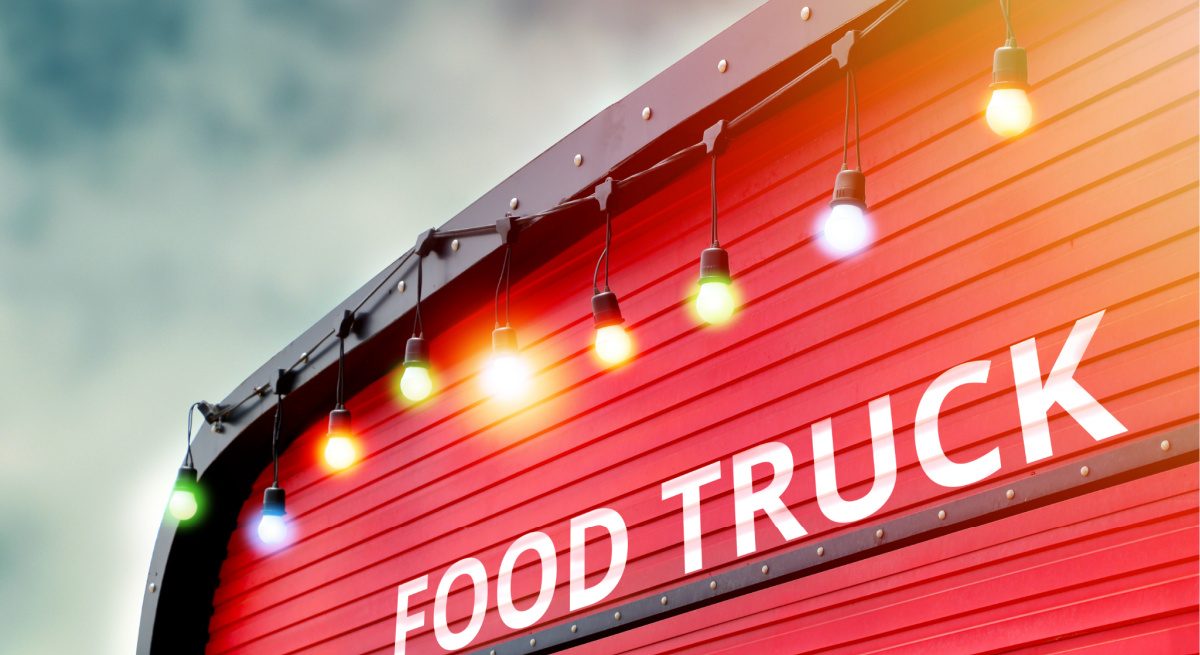Case Study: How a Food Truck Can Open Doors to Restaurant Ownership
5 Min Read By Jess Simms
Kyle Gorlie opened his Vet Chef food truck in 2016. In four years of operation, he’s doubled his sales every year, and today pulls in more than $475,000 a year. Those are profits many brick-and-mortar restaurants would look at with envy.
But Gorlie’s plans don’t stop with the food truck. His goal is to open a physical location for his restaurant, something he hopes to accomplish in the next year. In fact, a restaurant was his initial plan after graduating from culinary school until he started planning and realized a food truck was a better choice.
Why did he opt for a food truck instead of a restaurant—and how did he achieve success so quickly? The UpFlip team interviewed the Vet Chef crew to find out, and for those questions that weren’t answered in the interview, you can find them on the UpFlip blog. We’ll share his answers with you in this article, along with our top reasons why a food truck makes the perfect gateway to opening a restaurant.
Why Is a Food Truck a Smart First Step?
- Lower start-up expenses. Gorlie’s initial investment on the Vet Chef’s opening day was $41,200, and that includes the food inventory for their first service. That’s much more achievable than the six-figure investment most restaurants require.
- You can go to your customers. A food truck isn’t tied down to any particular location. Instead of waiting for customers to come to you, a food truck can go wherever there are hungry people, whether that’s a music festival or a corporate lunch.
- More self-sufficiency. Gorlie and his wife handled most of the work the first four years, from running the finances to cooking the food to cleaning the truck. While you’ll likely want to hire someone to help take orders, you can realistically manage with a single part-time employee. That’s not something you can say about most restaurants.
The Vet Chef’s Recipe for Food Truck Success
Most people focus on logistics like food costs, menu selection, and profit margins when they give advice on how to open a food truck. While those things are important, they’re not the main points Gorlie emphasized when we interviewed him. If you want to emulate Kyle’s path, keep these four points in mind.
Gain Industry Experience
Many new restaurants fail because their owners are unprepared for the work involved. If you’ve never worked in the food industry before, putting in some time behind the line can help you prepare (and let you know if this lifestyle is for you).
You’ll hear plenty of stories of restauranteurs who started washing dishes and worked their way up to executive chef. You don’t necessarily need to take this kind of long, winding path, though. In Gorlie’s case, he went to culinary school to learn how to cook like a professional. Whatever you can do to give you stronger qualifications will be helpful once you open your business.
Roll with the Punches
The Vet Chef lost power in their truck the night before they were set to open. Later that week, their truck’s generator blew. Sounds like a run of bad luck, right? The truth is that’s business as usual for a food truck. Along with the usual concerns of a restaurant, food trucks have to contend with things like roadside breakdowns and popped tires.
Whatever can go wrong usually will. Even if you plan ahead, you’ll find yourself thinking on your feet a lot as a food truck owner. If you’re not able to push through and carry on with your workday, you’ll never be able to succeed.
Never Say No
Not every place you park your truck is going to turn a crazy profit, but even seemingly bad gigs can lead to bigger opportunities down the line. In your first year of operation, your main goal is to build your reputation. Take advantage of every chance you get to do that, even if you’re not sure that it will be a big money maker.
Keep Your Word
Remember those popped tires we mentioned? The Vet Chef has had five in the past year, all on their way to events. In every case, they’ve still made it to their gigs on time, and stayed the entire time they promised to be there.
Customers aren’t the only ones who talk. Businesses and event coordinators talk to each other, too, and they can be some of your strongest allies as a food truck owner if you cultivate those relationships. If you agree to do an event, show up. It might sound simple, but you’d be surprised how many food trucks fail because their owners gain a reputation for being flaky or unreliable.
Pivoting from a Food Truck into Restaurant Ownership
You’ve seen the advantages of starting with a food truck, but how does it help you open a restaurant? Here are some ways you can benefit by taking this route:
- Fine-tune your menu. Only one item that was on the Vet Chef menu on opening day is still around (their signature California burrito). By trying out a lot of different items, Kyle was able to see what sells and what doesn’t. That’s helpful information to have when you’re building a larger restaurant menu.
- Scout your location. A food truck is an excellent way to find out where your food has the most consistent draw with potential customers. Being mobile lets you test out different markets before you commit to a brick-and-mortar.
- Build a reputation. One of the hardest parts of opening a restaurant is getting those early customers to come through the door and check out your food. A food truck gives you a head start on this, building a following in your community so you start with a reputation already in place.
The sad truth is most restaurants fail in their first year. Starting with a food truck can help prevent your restaurant from becoming a statistic. That said, opening a new location is never easy. If you’re planning to make this pivot, here are a few steps you should take first.
#1: Choose a concept that makes sense with your food truck.
At Gorlie’s new restaurant, he still plans to use the burrito concept, expanding his menu more than changing it. He also plans to do counter service rather than a sit-down restaurant, capitalizing on his ability to deliver delicious food quickly.
You’ll save yourself a lot of work if you use the same flavors, atmosphere, and service style in both your locations. This doesn’t necessarily mean replicating the menu, but fans of your food truck should enjoy the experience if they eat at your restaurant.
#2: Study up on local regulations.
Owning a food truck introduces you to food safety regulations, licensing, and insurance, but they all get more complicated when you own a brick and mortar restaurant. Your local chamber of commerce or small business association will be able to help you find the resources you need. Just like with a food truck, you want to start this process a solid six-12 months before you intend to open.
#3: Plan for your increased expenses.
If you haven’t hired full-time staff yet, you’ll need to as soon as you open a second location. Along with payroll, operating costs like rent and utilities are larger than the operating expenses of a food truck. The bottom line is your expenses will more than double when you open the restaurant. With those added costs comes increased profit potential, but it can still be a big blow to your finances if you’re not prepared for it.
What’s the Bottom Line?
Many people dream of opening a restaurant, but the work and expense involved can seem like an insurmountable obstacle. A food truck can be a great way to get the ball rolling on your dream, letting you build your brand (and profits) before you’ve even picked a location.
And as you can see from the Vet Chef, a food truck can be a very profitable business in its own right—especially if you follow Gorlie’s plan for success. Opening a restaurant might feel like a foolish venture in the current uncertainty, but a food truck is exactly the right business for the times.


